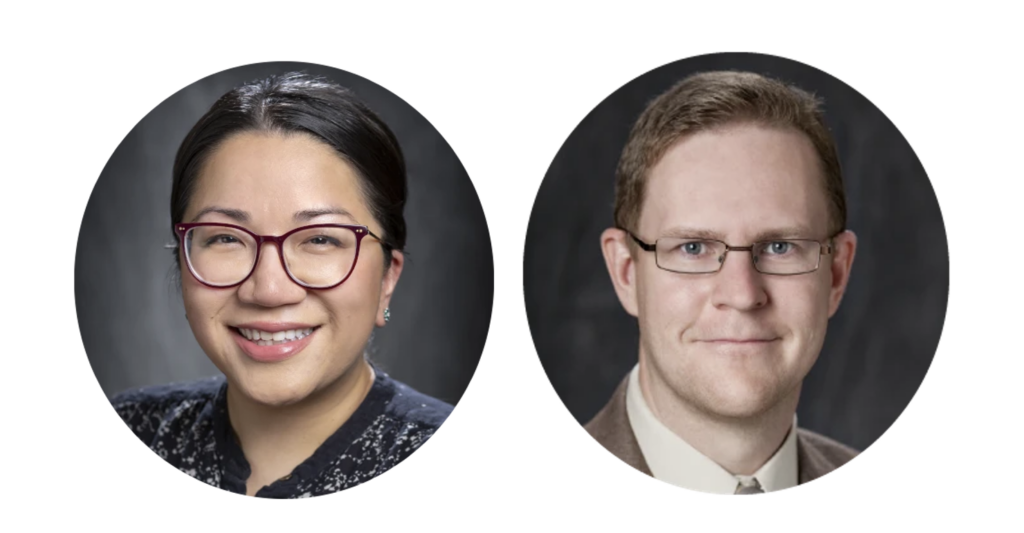
We are Bich Do, Research Associate, and Sam Robison, Associate Director and Associate Professor of Research of the Louisiana State University Social Research and Evaluation Center. In this post, we discuss the challenges of evaluation work in a large university system situated in the Deep South, shedding light on the unique challenges and solutions we’ve encountered while striving to align with the AEA Guiding Principles.
The Guiding Principles, alongside other important frameworks (e.g., the AEA Competencies and JCSEE Standards), provide critical guidance for evaluators to ensure that they pursue and represent meaningful and appropriate professional norms of behavior. However, the Principles provide an ideal, and evaluators frequently fall short due to resource limitations, a lack of knowledge, individual bias, and other real-world obstacles.
Navigating Real-World Work: Insights and Perspectives
This becomes particularly challenging when you consider the organizational, political, social, and economic context. At SREC, we work in a large university setting. We appreciate the benefits of working in the university setting, which offsets many challenges. For example, since the administration values the development and promotion of knowledge, we have an advantage when it comes to having or developing technical skills. However, the bureaucracy often slows down our ability to get our work done when it comes to hiring, obtaining approvals, and processing contracts, limiting our responsiveness and flexibility. Due to the time needed to negotiate and approve contracts, evaluation projects cannot always start on a project’s “day one.” Hiring is also time consuming. These issues can have ripple effects across each Principle.
SREC also operates in the Deep South, where the perspectives of our partners, evaluands, and other stakeholders can hinder pursuit of the Guiding Principles. Cultural, political, and economic nuances require us to carefully navigate our work. Our experiences have taught us the importance of understanding and adapting to the perspectives and behaviors of partners and evaluands. Locally, relationships extend beyond the professional sphere into personal and community connections. Building trust is paramount, requiring an approach that acknowledges the significance of connections and context. These elements are integral factors that bridge the gap between the evaluator and the community.
Lessons Learned
- Build and maintain relationships: We have advocates and allies within our college who help ensure we get our work done with minimum barriers. Relationships with external partners is also critical, as this is the foundation for sustained funding.
- Have empathy: Understanding the climate and culture of partners and the myriad demands on them is crucial. In the education setting, cultural differences within the student body and among educators impact how evaluation initiatives are received. We strive to be empathetic to the challenges faced by educators and administrators who navigate not only the daily demands of education but also district- and state-level mandates.
- Be flexible: The rigid structures of some evaluation designs may conflict with the diverse needs of our partners. We’ve learned to be flexible in our evaluation methodologies, adapting them to accommodate each partner’s needs and constraints.
- Understand statewide policies: Louisiana’s educational policies are shaped by statewide mandates. For relevant work, navigating these policies and understanding their impact on school districts is crucial. The political environment in Louisiana can impact all areas of the evaluation process, so we must stay informed.
The realities of evaluation work within a large university system in the South necessitate adaptability, perseverance, and strategic relationship-building. While challenges persist, our experiences navigating realities and working with partners have paved the way for innovative solutions. These insights enrich our work and contribute to the important conversation regarding the role of cultural context and political landscapes in our evaluation work.
The American Evaluation Association is hosting University-Based Centers (UBC) TIG week. All posts this week are contributed by members of the UBC Topical Interest Group. Do you have questions, concerns, kudos, or content to extend this AEA365 contribution? Please add them in the comments section for this post on the AEA365 webpage so that we may enrich our community of practice. Would you like to submit an AEA365 Tip? Please send a note of interest to AEA365@eval.org. AEA365 is sponsored by the American Evaluation Association and provides a Tip-a-Day by and for evaluators. The views and opinions expressed on the AEA365 blog are solely those of the original authors and other contributors. These views and opinions do not necessarily represent those of the American Evaluation Association, and/or any/all contributors to this site.
